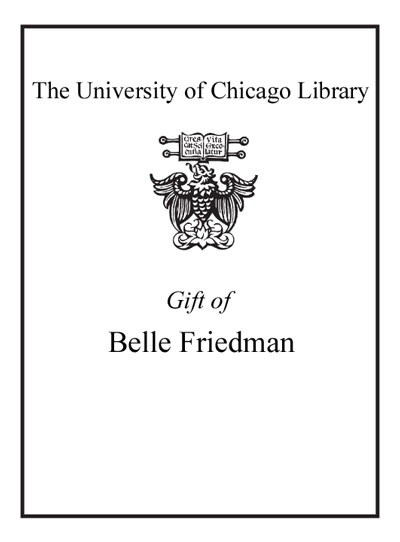Review by Booklist Review
New York City, like the country it's in, is a place that promises you everything but gives you nothing, contends Julio Santana. So the young man struggles to save his crumbling piece of Spanish Harlem even as he works for Eddie, an insurance-fraud specialist responsible for destroying much of Julio's neighborhood. Hanging onto the notion that in America, it's where you end up that matters, not how you get there, Julio hopes to pay for night school and fix up the apartment building floor he owns by setting fires for Eddie and watching over the old man's unacknowledged son. Soon, though, the flames from Julio's hidden life threaten to consume everything he has worked for--along with his parents; his Santeria priest friend, Papelito; and gallery owner Helen. In his searing portrait of a community at the tipping point, Quinonez ably illuminates the sordid politics of gentrification and the unexpected places new immigrants turn to for social and spiritual support. His exploration of the often misunderstood Santeria--the title references the religion's trickster god, Chango--proves especially fascinating. --Frank Sennett Copyright 2004 Booklist
From Booklist, Copyright (c) American Library Association. Used with permission.
Review by Publisher's Weekly Review
With the money he makes burning down houses as part of an insurance scam, Julio Santana, 29, a reluctant professional arsonist in Spanish Harlem, strives to make a better life for himself and his parents in this heart-on-its-sleeve novel of urban Latino life by Quinonez, author of the critically acclaimed Bodega Dreams (2000). Despite his ambitions to make good he's also in night school and working an above-board demolition job Julio is wary of the gradual gentrification of his beloved neighborhood, which takes a personal turn when white girl Helen moves in downstairs. Her swings from condescension to belligerence are rather jarring (and not entirely credible), but Julio falls for her and embarks on a doomed relationship. Meanwhile, his old friend Maritza is running a church on the ground floor of his building, which she uses as a front for anti-AIDS crusading and shady immigration dealings. Erratic plotting jolts the reader from one neighborhood drama to the next, as Julio wrestles with questions of identity and ethics. But when he's blackmailed by his boss into doing one last arson job, a plot twist lets him (and Quinonez) take the easy way out. Quinonez has a comfortable familiarity with his turf and the catchy Spanglish most of his characters speak, but he tackles too much in this sometimes preachy, sketchy novel. Agent, Gloria Loomis. 10-city author tour. (Oct.) (c) Copyright PWxyz, LLC. All rights reserved
(c) Copyright PWxyz, LLC. All rights reserved
Review by Library Journal Review
Talk about mix-ups: devout Julio, an arsonist by trade (he's supporting his aging parents), falls for scandalous Anglo Helen, while Maritza, a pastor who sells illegal U.S. citizenhip papers, risks all for love of an undocumented immigrant. From the author of the acclaimed Bodega Dreams; with a ten-city author tour. (c) Copyright 2010. Library Journals LLC, a wholly owned subsidiary of Media Source, Inc. No redistribution permitted.
(c) Copyright Library Journals LLC, a wholly owned subsidiary of Media Source, Inc. No redistribution permitted.
Review by Kirkus Book Review
Making do and getting by in present-day Spanish Harlem. QuiÑonez's second, after his well-received debut, Bodega Dreams (2000), follows narrator Julio Santana, a high-school dropout nearing 30 who supports himself and his parents by working on a demolition crew while also attending night school--and freelancing as an arsonist who torches buildings as part of an insurance scam. Julio's smart, reflective voice is one of the chief pleasures here, as evidenced by its arresting first sentence: "The house I'm about to set on fire stands alone on a hill." QuiÑonez gradually introduces other characters who define and complicate Julio's relationship to his down-and-out world. He genuinely loves and respects his devout mother and layabout father (a former salsa musician softened by "hard living"). He watches over his "retard" buddy Trompo Loco, who believes he's the illegitimate son of Julio's firebug boss Eddie Naglioni. And he's more chaotically involved with his childhood friend and enemy, belligerent socialist-social activist Maritza; self-styled Santeria priest "Papelito"; and a white woman named Helen, whose artistic preoccupations and liberal guilt simultaneously attract and repel him. There are echoes of James Baldwin's Another Country in this bumpy story's blend of ethnic identities and sexual persuasions. But it's redundant, and its vise-grip plot--in which a misjudgment Julio makes during a "burning" puts him under Eddie's thumb--isn't wholly credible. What's best about Chango's Fire (whose title alludes to the Santeria "life force") are QuiÑonez's ingeniously detailed revelations of how people cheat and improvise, to survive in an impoverished and dangerous racist environment. This is an author who knows his material. But next time out he needs to embody it in situations and characters more believable and compelling. Chango's Fire is, therefore, a rough patch in the road. Still, QuiÑonez appears to be on his way to artistic maturity. Copyright ©Kirkus Reviews, used with permission.
Copyright (c) Kirkus Reviews, used with permission.
Review by Booklist Review
Review by Publisher's Weekly Review
Review by Library Journal Review
Review by Kirkus Book Review

